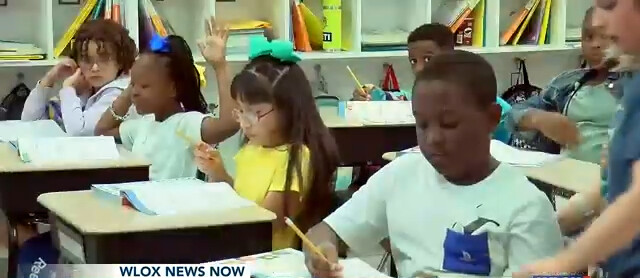In a country obsessed with surface-level solutions, it’s easy to miss real revolutions when they happen. That’s exactly what we’re seeing in Mississippi’s public schools — and it’s time for the rest of America, especially its political class, to take notice.
Over the past decade, Mississippi has staged one of the greatest educational comebacks in modern American history. Once ranked dead last in reading achievement, Mississippi now boasts some of the nation’s highest gains in literacy, outperforming many wealthier states. Fourth-grade reading scores have surged, and crucially, the success wasn’t limited to one demographic. Black students in Mississippi matched the broader gains, proving a truth that too many elites seem unwilling to admit: when you set high expectations for Black children and support them, they rise to meet them.
This didn’t happen by accident. In 2013, Mississippi’s leaders passed a sweeping set of conservative education reforms. They required schools to focus heavily on phonics-based instruction. They ended the practice of promoting third graders who couldn’t read proficiently. They invested in specialized reading coaches who worked directly with teachers rather than bloating central office bureaucracies. In short, they demanded excellence, provided targeted support, and held everyone — students, teachers, and administrators — accountable.
The results speak for themselves. But the deeper story is what these reforms say about our national culture — and what they say about us.
For decades, many on the left have pointed to disparities in test scores as proof that America’s systems are rigged beyond repair. According to this thinking, Black children are doomed to underachieve unless the system is torn down and rebuilt through “equity” initiatives: lower standards, race-based interventions, and a constant emphasis on victimhood over capability. The message is clear, even if it’s rarely said aloud: we don’t believe Black students can succeed unless we rig the game in their favor. (RELATED: Blacks Need High Quality Education, Not a DEI Agenda)
Mississippi’s story smashes that narrative to pieces.
The state didn’t lower standards to close the racial gap — it raised expectations for everyone. And when offered real tools, real structure, and real belief in their abilities, Black students responded by proving the doubters wrong. This is the cultural revolution we should be fighting for: one that treats Black children not as fragile wards of the state, but as capable young men and women with dignity, intellect and untapped greatness. (RELATED: Blacks Need High-Quality Education, Not a DEI Agenda — Part 2)
Progressives love to point to inequality between racial groups as evidence of systemic racism. Yet in Mississippi, when conservative policies demanded the best from all students — including Black students — those students rose to the challenge. They weren’t “left behind,” as so many critics predicted. They excelled.
It’s the product of a broken culture — a culture that expects less of Black children, then calls it compassion.
That matters because it exposes an uncomfortable truth: Much of the educational underperformance we see today isn’t inevitable, and it isn’t due to inborn racial barriers.
Real compassion looks different. It means offering the tools to succeed and the respect to demand success. Mississippi did both. It hired reading coaches to lift up struggling kids without lowering the bar. It instilled pride and self-confidence not by handing out empty trophies, but by helping students earn their victories. That kind of earned excellence builds true self-esteem, true pride, and true liberation — the kind no government program can manufacture.
What happened in Mississippi proves that the system isn’t hopelessly stacked against Black America. It proves that when we challenge all our students — not coddle them, not excuse them — they are capable of meeting, and exceeding, high expectations.
This is what real conservative reform looks like. It’s not about abandoning disadvantaged students to sink or swim. It’s about equipping them to swim — and then insisting they do it, because we know they can. It’s about replacing the soft bigotry of low expectations with the hard, sometimes uncomfortable, but deeply empowering gift of belief.
Mississippi’s success story is a cultural story as much as it is an educational one. It’s a story about dignity. About ambition. About rejecting the false charity of lowered standards in favor of the real, often harder charity of expecting greatness.
If America wants to honor the dignity of every student, it should look to Mississippi — and take notes.
READ MORE from David Sypher Jr.:
We Told People Not to Have Kids — Now We’re Surprised They Listened
New York’s Congestion Pricing Class War
David Sypher Jr. is a political writer and commentator with articles featured in various publications.
























